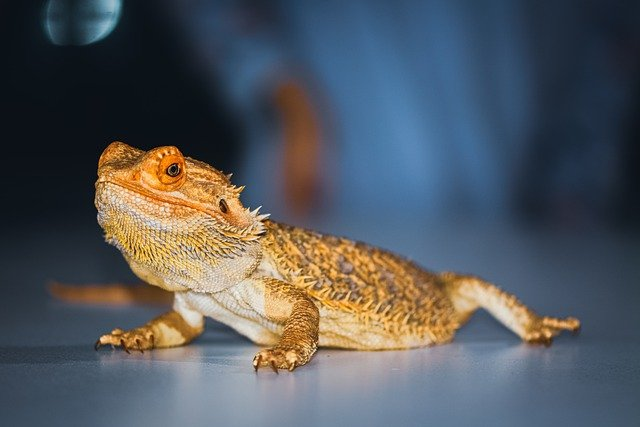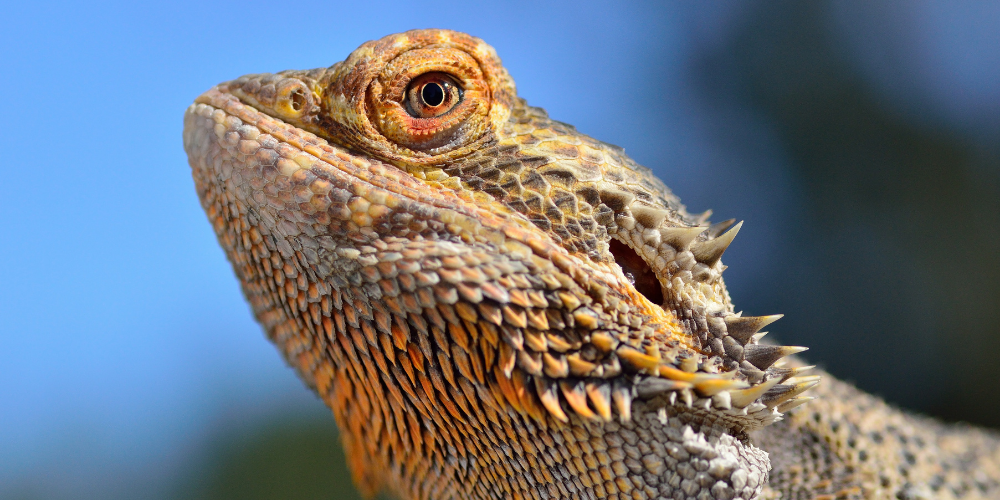Why did my bearded dragon die? If you’re a bearded dragon owner, then you know that they are a delicate creature. They require a lot of love and care in order to thrive. So it’s heartbreaking when they pass away suddenly. If you’re wondering why your bearded dragon died, then read on for some possible causes.
Bearded dragons are a popular choice for pet owners, but they require special care to stay healthy.

These reptiles come from the desert, so they need a warm and dry environment. Bearded dragons also need a diet that is high in protein and low in fat. In the wild, these lizards eat mostly insects. In captivity, they can be fed a variety of foods, including chopped vegetables, chicken, and crickets. Bearded dragons need a large enclosure with plenty of places to hide and basking spots. They also need access to UVB light, which helps them to absorb calcium. Without proper care, bearded dragons can become sick and even die. Some common health problems include metabolic bone disease, respiratory infections, and gastroenteritis. Bearded dragon owners should learn about these conditions and how to prevent them. By providing their pet with the proper care, they can help to ensure a long and healthy life.
Can Ingesting Toxic Plants Leave My Bearded Dragon Dead?
Bearded dragons are typically found in Australia and can grow up to 24 inches long. They are popular pets because of their docile nature and striking appearance. Bearded dragons are omnivorous, meaning they eat both plants and animals. Baby bearded dragons consume a fair amount of vegetation, baby food, and calci worms, a bearded dragon’s diet consists mostly of insects. a bearded dragon might get an impaction from a loose substrate in its tank or from being fed giant insects. Occasionally, however, a bearded dragon may ingest a toxic plant. Some of the most common toxic plants include aloe vera, banana leaves, and daffodils. So what exactly happens when a bearded dragon ingests a toxic plant?
The first thing that will happen is that the bearded dragon will start to experience gastrointestinal issues. This can include vomiting, diarrhea, and loss of appetite. The beardie may also start to show signs of distress, such as lethargy and weakness. If the toxicity is severe enough, it can even lead to paralysis and death.
Bearded dragons typically die within 24 hours of ingesting toxic plants. If you suspect your pet has eaten a toxic plant, it is important to take them to a vet immediately.
Other Reasons My Baby Beardie or Bearded Dragon Died?

- Your bearded dragon died because you bought your baby bearded dragon from a pet store that isn’t credible.
- Your bearded dragon dying is a result of fatty liver disease and consuming toxic bugs.
- Your dying bearded dragon about a week ago had an untreated impaction from a loose substrate. This occurs when your bearded dragon swallows something that remains in its digestive tract.
- Your dead bearded dragon had a short life cycle due to organ failure.
- Your beardie died a sudden death from not eating regularly and lacking fat-soluble vitamins.
- Your beautiful bearded dragon’s death is because it didn’t have enough UVB lights and a heat lamp.
Does Black Beard Disease Affect A Bearded Dragon?
Bearded dragons are a type of lizard that is native to Australia. They get their name from the Blackbeard-like spines that protrude from their chin and throat area. Bearded dragons are popular pets because they are relatively easy to care for and can live up to 15 years. However, one potential problem that pet owners may face is black beard disease. This is a condition that causes the Blackbeard spines to fall out and can eventually lead to death. The exact cause of black beard disease is unknown, but it is thought to be related to stress or poor nutrition. Bearded Dragons Pet owners should be aware of the signs of black beard disease and consult with a vet if they notice any changes in their dragon’s appearance. Early diagnosis and treatment are essential for ensuring a long and healthy life for your bearded dragon.
Do Bearded Dragons Die Of Old Age?
Bearded dragons are lizards that are popular pets. They can live for a long time, up to 20 years in captivity. However, they do not age gracefully. Bearded dragons often suffer from health problems associated with old age, such as arthritis and kidney disease. They may also become less active and lose interest in food. As a result, many bearded dragons die prematurely due to poor health.
Can A Female Bearded Dragon Die Of Loneliness?
Bearded dragons are social creatures that enjoy the company of their peers. In the wild, they live in large groups and spend their days basking in the sun, foraging for food, and chasing off rivals. However, captive bearded dragons often suffer from loneliness and boredom, as they are typically kept alone in small cages. This can lead to several problems, including weight loss, lethargy, and depression. In some cases, captive bearded dragons will even stop eating and drinking altogether, leading to death. For this reason, it is important to provide your pet with a suitable cage mate. Bearded dragons of the same size and gender are best suited as companions and cage mates, as they are less likely to fight or compete for food. When selecting cage mates, it is also important to consider your dragon’s personality. Some dragons are more laid-back and easy-going, while others can be quite aggressive. By matching your dragon’s personality with that of its potential companion, you can help ensure a happy and long-lived relationship.
Can Bearded Dragons Die From Yellow Fungus Disease?
One common health problem bearded dragons can experience is a yellow fungus disease. This disease is caused by a fungus called Emmonsia chrysosperma, which typically affects a new bearded dragon or baby dragon. Yellow fungus disease is caused by a type of fungus that thrives in damp environments. The fungus leads to the formation of yellow patches on the skin, as well as scale loss and shedding. In severe cases, it can even cause death. Yellow fungus disease is often treated with antifungal medication, but it is important to catch it early to ensure the best possible outcome. Bearded dragons can contract the disease if they live in a dirty enclosure or if they are kept in too much humidity. The symptoms of yellow fungus disease include discoloration of the skin, shedding problems, and loss of appetite. If left untreated, yellow fungus disease can be fatal. Bearded dragon pet owners should take care to keep their pets’ enclosures clean and dry to prevent the spread of this disease.
Conclusion
There are many potential reasons why your bearded dragon may have died. Some of the most common causes include malnutrition, dehydration, stress, and infection. If you’re unsure of what caused your bearded dragon’s death, it’s best to consult with a reptile vet or experienced reptile keeper for professional medical advice. With proper care and husbandry, most bearded dragons can live long and healthy lives.

